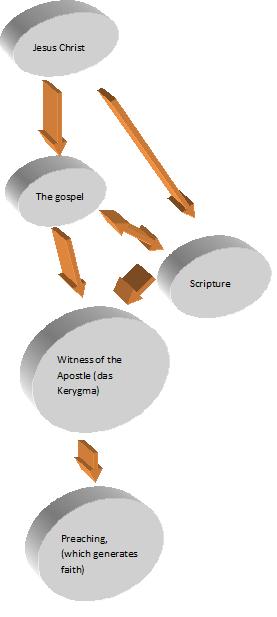Eckstein on the implicit canon-hermeneutic of the New Testament
Have you ever wondered why the church kept four differing Gospels when they all claim their attachment to the one gospel of Jesus Christ? Plus four equals one? Have you ever, likewise, considered how the Gospel harmonisation of Tatian (not to mention the use of Mark by Luke and Matthew) does not seem to conform to our expectations about how Gospel tradition should be handled?
To help me think through these issues, I just read Hans-Joachim Eckstein's fine essay, 'Das Evangelium Jesu Christi: Die implizite Kanonhermeneutik des Neuen Testaments' (now a chapter in his new book, Kyrios Jesus: Perspektiven einer christologischen Theologie [Göttingen, Neukirchener Verlag: 2010]). By 'canon' he means, of course, not a formal list of authoritative and recognised books, but the requirements, rudiments and motivations in the transmission of the New Testament texts themselves.
His results won't be easy reading for those who want to equate scripture with the word of God in an undifferentiated sense, but he does helpfully explain the dynamic of early Christian handling of authoritative tradition in a way that exalts the position of Jesus Christ, as well as the way scripture was handled in relation to the gospel message itself. I did not entirely like his recourse to language concerning the 'Person' of Christ, as the centre, unifying point, for the simple reason that the NT texts themselves do not use such 'Person' language. Rather, they speak more of Jesus Christ in relation to his people or at least certain individuals, so his picture may look a little different after this (I think necessary) change is made (plus, I am not too sure about his arrows, and their mostly one directional nature). But his case is well presented, based largely upon the Pauline corpus, which he understands to operate with the following terms and hierarchical distinctions:
Word of God in Paul
(this is adapted from his own graphic representation)





1 Comments:
Hi Chris
Slow updating my bookmarks & just found the new blog. :)
Your post stirred up some thoughts along these lines, somewhat on a tangent to what you said.
If we start with, say, Mark -- the point of GMark is that Christ *is* the gospel. We tend to miss the forest for the trees. For relationship, Christ precisely is God-with-us rather than the unknown/unknowable God-in-himself.
That's why so much modern enfatuation with apophaticism leaves me cold. When apophatic theology is just a frank acknowledgment that "we see in a glass darkly ... we know in part" that's all well and good. But when it takes the focus on God-with-us and returns it to the unknowable, then it has crossed the line and begins doing us a disservice.
Take care & God bless
WF
Post a Comment
<< Home